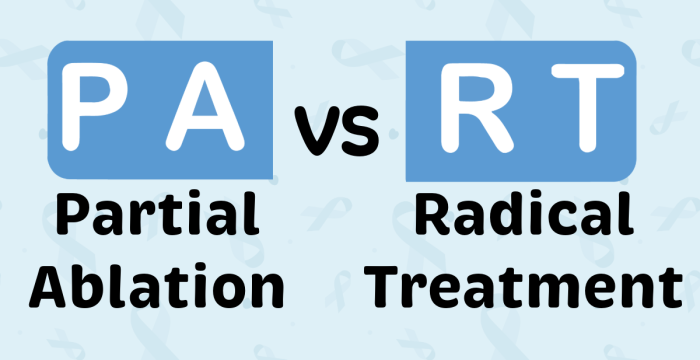Welcome to the PART trial website.
Prostate cancer is the most common cancer in UK men. Some men have cancer on one side of the prostate, but are still offered treatment to the whole prostate (Radical Treatment). New technologies (Partial Ablation) can now treat part of the prostate only, destroying the cancer but preserving urinary and sexual functions. These technologies may have fewer side-effects, but none has been compared with radical treatments to ensure they are as safe and effective.
The PART study will directly compare Partial Ablation with Radical Treatments for intermediate-risk prostate cancer on one side of the prostate. Partial Ablation aims to destroy (ablate) all the cancer cells in one side of the prostate gland using techniques that are less invasive including High Intensity Ultrasound (HIFU) or Irreversible Electroporation (IRE) (where quick electrical pulses are administered, with the use of electrodes, around and into the tumour to kill cancerous cells) . Radical Treatments are surgery (prostatectomy), radiotherapy or a form of radiation therapy where a sealed radiation source is placed inside or next to the area requiring treatment (brachytherapy). They are called ‘Radical Treatments’ because they aim to remove or destroy all the cancer cells that might be present in the whole prostate gland, so that they cannot grow or spread (see below for further information). The study aims to compare Partial Ablation with Radical Treatments in relation to: (a) Preventing cancer growing, coming back, or spreading outside the prostate gland (b) Assessing damage to nearby nerves and organs that can cause sexual, urinary, or bowel problems after treatment (functional and quality-of-life outcomes).
The PART study aims to recruit 306 men from hospitals across the UK. The results of the study will provide detailed information to help patients, clinicians and policymakers decide which treatment to have for intermediate-risk prostate cancer in the future.






